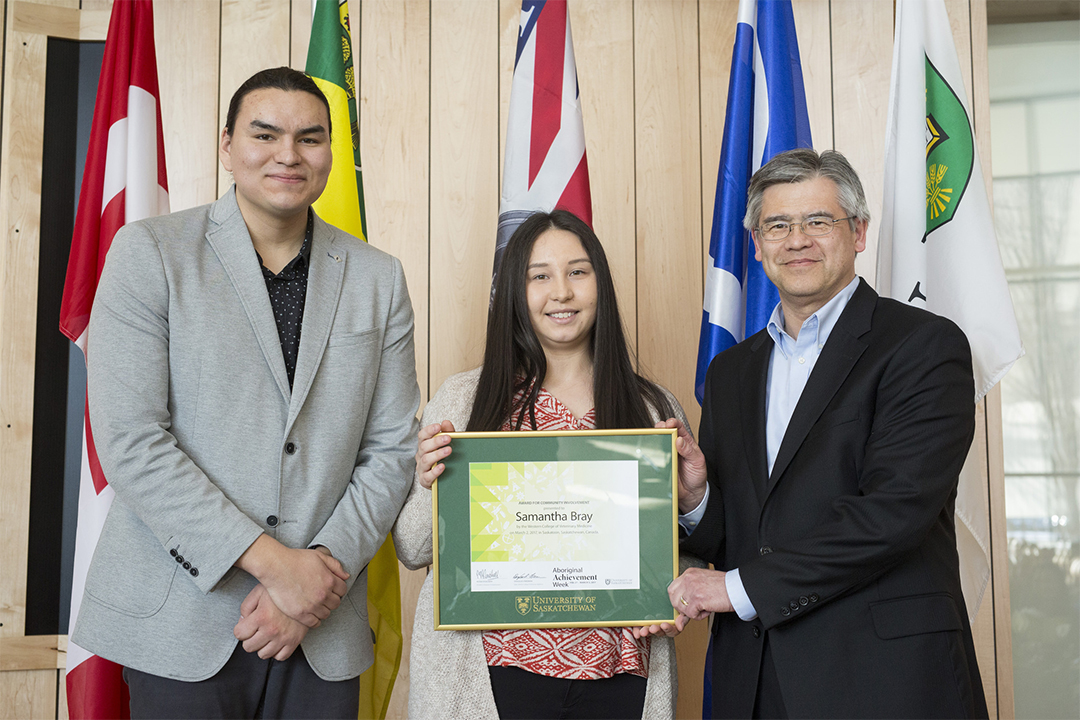
Vet student recognized for community work
First-year veterinary student Samantha Bray's invaluable contributions to her community have earned her an Aboriginal Student Achievement Award at the University of Saskatchewan (U of S).
By WCVM TodayBray was one of 48 Indigenous U of S students who were recognized for their academic, leadership and community outreach accomplishments. The awards ceremony took place on March 2 during the university's Aboriginal Achievement Week.
Bray, who is a proud member of the Stellat'en First Nation, completed a four-year Bachelor of Science degree at the University of Winnipeg (U of W) before moving to Saskatoon in August 2016 to begin veterinary program at the Western College of Veterinary Medicine (WCVM) in August 2016.
Last summer, Bray worked with students in the adult literacy program at Winnipeg's Neeginan Learning and Literacy Centre that is part of the Centre for Aboriginal Human Resource Development (CAHRD). The organization aims to relieve and prevent unemployment among Aboriginal people in Winnipeg.
Bray presented information to the students on a range of topics — everything from data collection to food production and traditional gardening methods. She and the students also tested three different types of hydroponic systems as they grew edible vegetables for the centre's kitchen. They succeeded in growing large quantities of vegetables – results that could have a huge impact on northern remote communities that lack access to reasonably priced, fresh produce.
Bray has worked hard toward her goal of becoming a veterinarian — a career choice she made early on in her undergraduate education. In addition to volunteering at a veterinary clinic, she worked as a lab demonstrator in the animal physiology lab, and she focused her undergraduate classes and research on areas that would benefit her as a veterinary student. She also worked as a summer student at the U of W Vivarium where she was responsible for the welfare of the experimental animals.
Once she graduates from the WCVM in 2020, she's looking forward to inspiring others in her community: her primary goal is to provide veterinary services and animal welfare education to remote northern First Nations communities that don't have access to veterinary services.
"I hope to own my own mobile vet clinic and provide access to basic examinations and spay and neuters," says Bray. "I'd like to educate the community members on the importance of small animal welfare, and I want to help reduce the stray and feral dog populations through low-income/subsidized spay and neuter surgeries."
